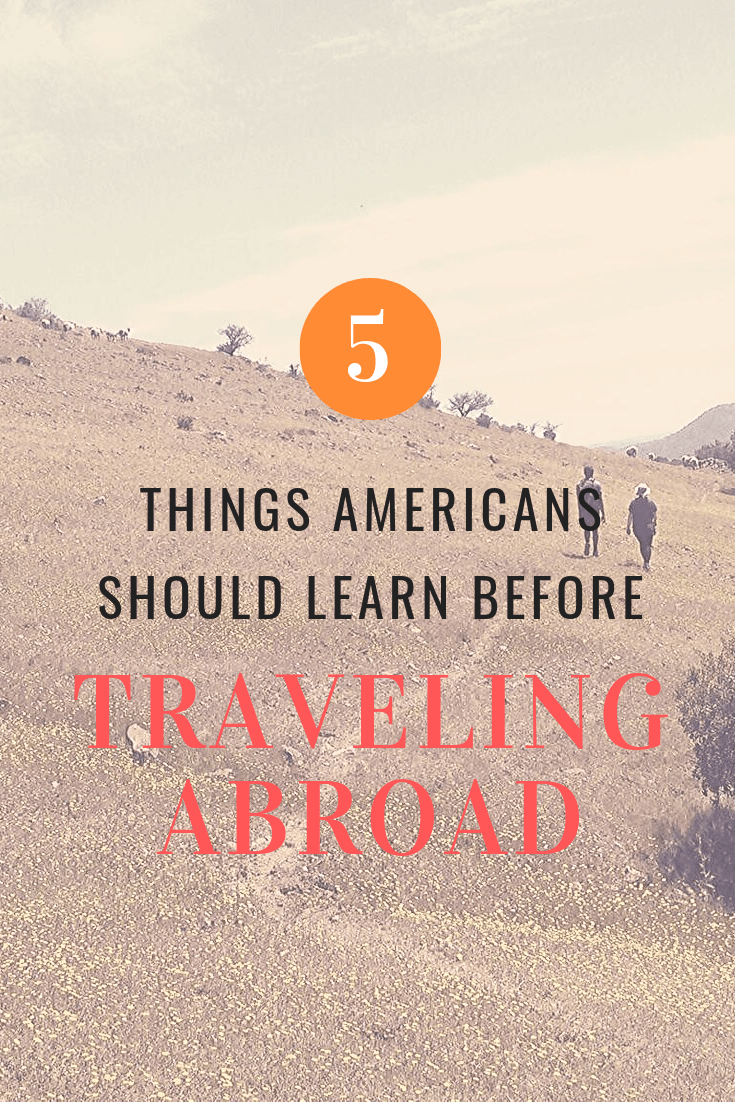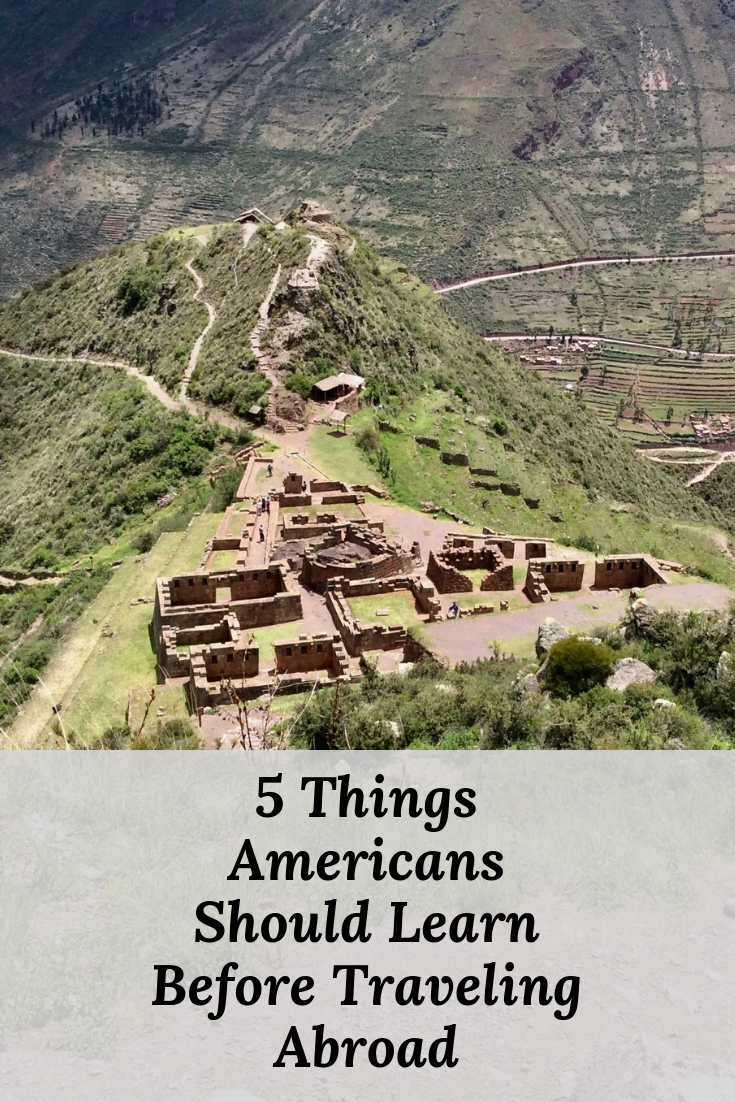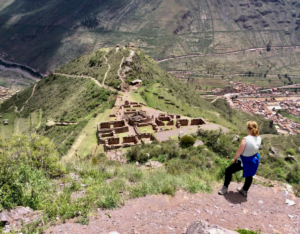We all probably know that us North Americans get a bad rap when it comes to traveling abroad. Like always, there’s good reason for that: we tend to be really obnoxious abroad. So, take some time to read through these five things to help check that impulsive Americanness that’s bound to come out at some point. Some of these are more specific to non-English speaking countries, hence the title — but generally these are pieces of advice that can be applied to almost anywhere.
1. It’s your job to figure out how to communicate, not theirs.
This is by far my biggest pet peeve when it comes to American travelers. I can’t count how many times I’ve seen an American become upset when someone in a different country where English is not the official language doesn’t speak English.
So, let’s get this straight: if you are in a country where English is not the official language, you have no right to take out your annoyance on locals that don’t know English. You also have no right to fume at the mouth if they speak English with a heavy accent. Since you are in their country, it’s on you to figure out ways to communicate.
This doesn’t have to mean that you have to be fluent in Spanish before going to Colombia, or that you have to hardcore learn Mandarin before going to China. But it does mean that you should take the time to learn some basic words, and then if communication breaks down figure out a different way to communicate. The onus is on you.
But if you’re there for longer than a month…
then I do believe that you better start learning the language(s).
Honestly, the best reason for this is that you can then communicate better with all the people that live there! Only talking to expats limits you to a specific friend group and also makes you incredibly dependent. For example, wouldn’t it be nice to be able to go to the doctor’s without an interpreter?
In addition, learning the nuances of a language can be frustrating but can also be really fun and intriguing. If you’re going to Chile and refuse to learn any of the Chilenismos because it isn’t “beneficial” to business Spanish, you’re cutting yourself off from engaging in more informal, friendly conversation. Imagine if someone came to stay in the United States and only spoke proper English — wouldn’t that drive you insane?
2. Don’t barter to the point of disrespect.
Obviously this only pertains to countries where you can barter. If you can’t barter in a country, don’t try to. Just don’t.
We seem to have this idea that in other countries you can continue to haggle and haggle about a price until you get the absolute lowest deal possible. Please stop thinking that. Yes, you can barter. No, you don’t have to settle for the high price that they quote you from the get-go. But you also need to know when to stop attempting to barter.
Merchants need to make a living. And, honestly, as tourists and foreigners with a lot more purchasing power and wealth, we deserve to pay a little bit more for goods. Stop thinking that you’re being cheated — it’s still a good price.
And to tie back to #1, if you’re taking the time to barter in the merchant’s first language, he/she will most likely drop the price quicker than if you’re trying to barter in English.
3. If you’re talking in a group of 4+ other Americans, you’re probably being loud and obnoxious.
Can we please change the stereotype that Americans are unaware of their surroundings, obscenely loud, and rude? Y’all are not helping when you’re traveling around with your American wolf pack counterparts, hooting and hollering out in the open.
You’re already going to stand out in a different country, so why make yourself stand out 10 times more? Chill out and check your voice level a little bit.
The choice is yours to travel with a big group or not, but personally it’s not my method of travel. Do we have to create walking comfort bubbles in order to explore another country?
4. If you can’t handle being nagged at tourist spots, don’t go to them.
Yeah, this one’s hard for me, too. I have a lot of respect for hustlers, but let’s face it: sometimes that shit can get ridiculous. No, I don’t want to spend $100 on your boat cruise, I’M SORRY!
But in all seriousness, we have to acknowledge that the economy in many places is tourist-driven. We are literally how they make money. If you don’t want to deal with this, then don’t go to those types of places! Work abroad, travel to remote areas, etc. But if you’re spending a week in Marrakesh, Morocco, you’re going to have to deal with hawkers trying to sell you tours and attempting to shuttle you into restaurants.
Additionally, many local economies thrive off of connections. That taxi driver that suggested that hotel and brought you to it? He may just have earned a slight commission for that. That tour guide that had you go to specific shops? He may have partnered with them.
This isn’t always true, of course. But when it is true, it doesn’t have to be a bad thing (although I’ve heard that it can get out of hand). Sometimes not everything is going to be the same structure that you’re used to — and that’s the wonderful thing about experiencing it. Unfortunately or not, this is how some tourist-driven places have learned how to make money.
5. Check why you’re scared: many countries are safer than the U.S.
There’s an interesting phenomenon: many Americans feel that the United States is actually safer than it is, in large part because they consider crime to only be in “pockets” throughout the U.S. If they just avoid these pockets, then they’ll have no problems (which also ties into class and racial segregation).
Of course, since we’re less familiar with other countries, we don’t apply this logic to Mexico or China or anywhere else. If there’s a travel warning for a part of Mexico, suddenly the whole country of Mexico becomes unsafe. If there are riots in Hong Kong, suddenly all of China is in upheaval. Not only is this painting a broad brush stroke over whole countries, but it perpetuates stereotypes about so-called “underdeveloped” countries when they’re frequently at least as safe or safer than the U.S.
So, factor all of this in before you start generalizing. And if you do find yourself assuming that a place is dangerous, check yourself and ask why.
(If you need a second opinion to back me up, check out Gary Arndt’s article in The Atlantic.)
What other countries think
On the other hand, residents of other countries tend to think that their country is more dangerous than it really is. I first learned this while at my orientation in Morocco for my study abroad – that many times perceptions of crime can be way higher than they actually are. And it has come into play pretty much whenever I travel: locals warning me about dangerous cities/places that aren’t actually that dangerous.
This isn’t to say just be reckless or to not take their warnings into account. But it’s good to keep it in mind when they’re telling you that your bag is going to get stolen if you set it down for five seconds in Santiago. Be cautious, but if you’re frantically grabbing your bag all the time you’ll probably look like more of a target.
In Conclusion
We have a lot to learn. So let’s work on not being made fun of across the world. If you have any more suggestions for us ridiculous American travelers, let us know!
Liked this post? Pin it!


Subscribe to receive Snook Outta Water’s monthly newsletter with exclusive updates and content.

Leave a Reply